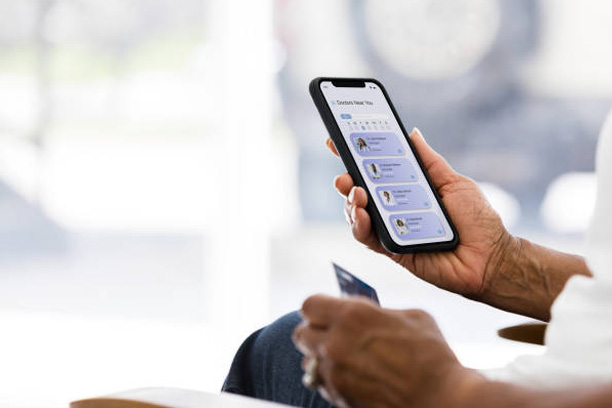In the ever-evolving world of technology, mobile application development stands at the forefront, driving innovation and transforming user experiences. The rapid advancement in this field necessitates staying updated with the latest technologies. Here, we explore the top technologies shaping the future of mobile app development.
Artificial Intelligence and Machine Learning
Artificial Intelligence (AI) and Machine Learning (ML) have revolutionized mobile app development. By integrating AI and ML, developers can create apps that learn from user behavior and improve over time. These technologies enable features like personalized recommendations, voice assistants, and predictive analytics, enhancing user engagement and satisfaction.
Internet of Things (IoT)
IoT is transforming mobile apps by enabling them to connect with a variety of smart devices. From smart homes to wearable technology, IoT integration allows for seamless interaction between mobile apps and physical devices, providing users with innovative functionalities and real-time data synchronization.
Augmented Reality (AR) and Virtual Reality (VR)
AR and VR are redefining the boundaries of mobile applications by providing immersive experiences. AR enhances the real-world environment by overlaying digital information, while VR creates entirely virtual worlds. These technologies are widely used in gaming, education, real estate, and retail, offering engaging and interactive experiences.
Blockchain Technology
Blockchain is gaining traction in mobile app development, particularly in industries requiring high security and transparency, such as finance, healthcare, and supply chain management. Blockchain ensures secure transactions, data integrity, and reduces the risk of fraud, making it an invaluable addition to mobile apps.
Cross-Platform Development Frameworks
Cross-platform development frameworks like React Native, Flutter, and Xamarin allow developers to create apps that run smoothly on multiple platforms (iOS and Android) using a single codebase. These frameworks reduce development time and cost while ensuring a consistent user experience across different devices.
5G Technology
The advent of 5G technology is set to revolutionize mobile app development by providing faster data transfer rates, lower latency, and enhanced connectivity. This will enable the development of more complex and data-intensive applications, such as real-time gaming, high-definition video streaming, and advanced AR/VR applications.
Cloud Integration
Cloud technology offers scalable storage solutions and processing power, making it easier for developers to build robust and resource-efficient mobile apps. Cloud integration facilitates real-time data access, improves collaboration, and enhances the overall performance and reliability of mobile applications.
Wearable Technology
Wearable devices like smartwatches and fitness trackers are becoming increasingly popular. Developing mobile apps that integrate seamlessly with these devices opens up new possibilities for health monitoring, fitness tracking, and personalized notifications, providing users with valuable insights and functionalities.
Beacon Technology
Beacon technology uses Bluetooth Low Energy (BLE) to transmit signals to nearby mobile devices. This technology is particularly useful in retail, hospitality, and tourism industries, enabling location-based services, personalized promotions, and improved customer experiences.
Voice Search and Voice Assistants
Voice search and voice assistants like Siri, Google Assistant, and Alexa are becoming integral parts of mobile applications. Integrating voice recognition technology enhances user convenience and accessibility, allowing users to interact with apps through voice commands and perform tasks hands-free.
Conclusion
The mobile app development landscape is continuously evolving, driven by technological advancements. By embracing these top technologies, developers can create innovative, user-friendly, and high-performing mobile applications that cater to the ever-growing demands of users. Staying updated with these trends is essential for staying competitive in the dynamic world of mobile app development.
